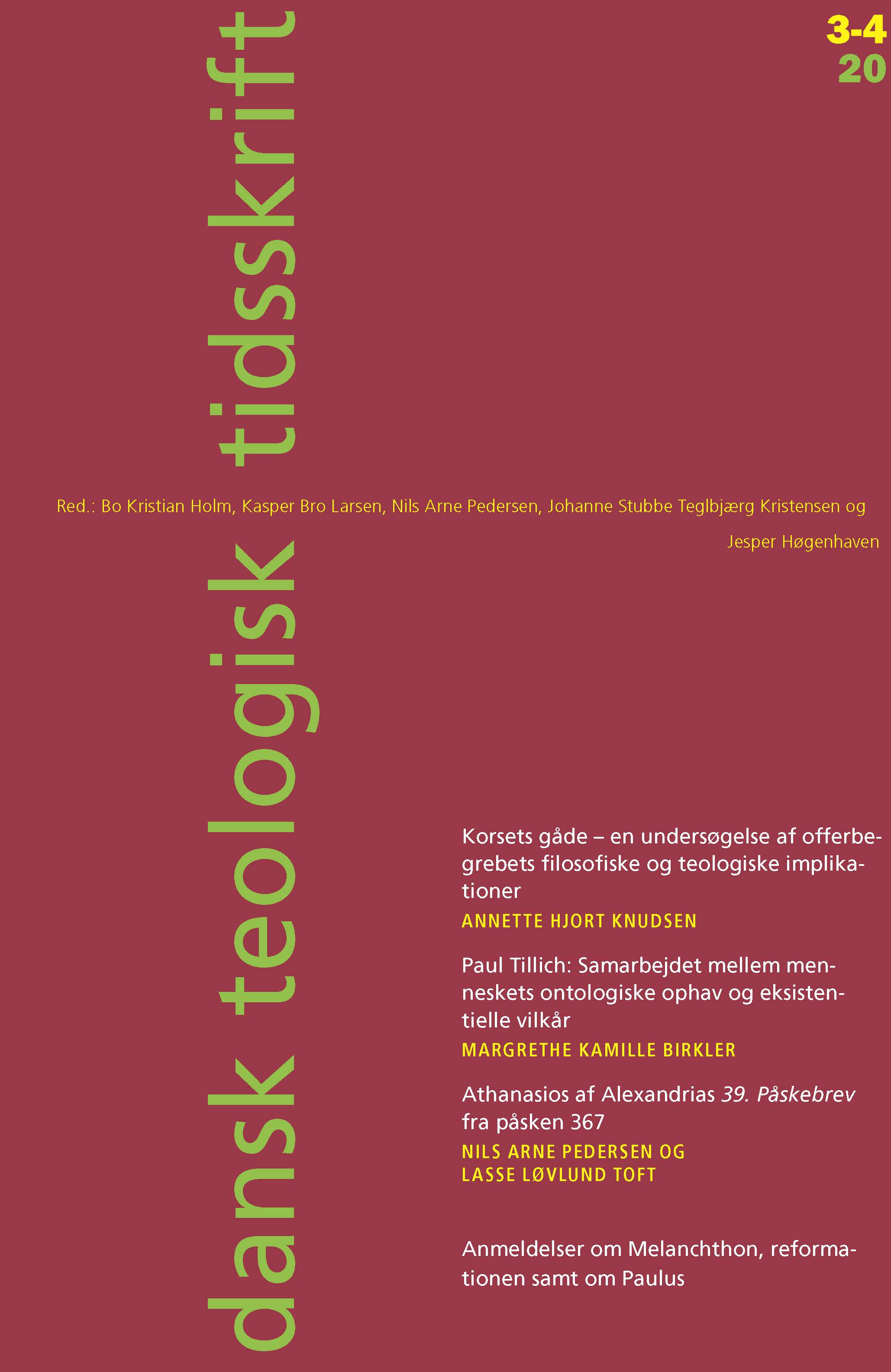Korsets gåde – en undersøgelse af offerbegrebets filosofiske og teologiske implikationer
DOI:
https://doi.org/10.7146/dtt.v83i3-4.125880Keywords:
Asle Eikrem, coherence, language, sacrifice, redemption, crucifixion, humanity, love, sin, ethicsAbstract
According to Asle Eikrem’s book “God as Sacrificial love”, the concept of the Christian God as a God of love is not coherent with the claim that Jesus was sacrificed on the cross for the redemption of human sins. Eikrem’s conclusion builds on a conceptual framework that describes the crucifixion as a self-sacrifice. His argument makes Jesus co-responsible, thus sanctioning the violent action. This way, evil becomes instrumental which is inconsistent with the notion of God as love. It is the intention of this article to show that (at least) one alternative conceptual framework makes it possible to maintain the view that the crucifixion was necessary for Jesus’ redemptive mission. The crucifixion is thus not inconsistent with, but rather a consequence of the conception of God as love. For Jesus to realize God’s incarnational intention of establishing a living fellowship with humanity is for him to realize a fellowship of experienced damnation followed by a truly redemptive resurrection.
References
Bolea, Ştefan, "The Courage To Be Anxious. Paul Tillich's Existential Interpretation of Anxiety", The Journal of Education, Culture, and Society 6/1 (2015), 20-25.
Cassedy, Steven, “What is the Meaning of Meaning in Paul Tillich’s Theology?” Harvard Theological Review 111/3 (2018), 307-332.
Finstuen, Andrew S., Original Sin and Everyday Protestants : The Theology of Reinhold Niebuhr, Billy Graham, and Paul Tillich in an Age of Anxiety (North Carolina: University of North Carolina Press 2009).
Hart, Curtis W., ”Paul Tillich and Psychoanalysis”, Journal of Religion and Health 50/ 3 (2011), 646-655.
Lentz, Bjarne, Paul Tillich (København: Gyldendal 1994).
Manning, Russel Re, “The Religious Meaning of Culture: Paul Tillich and Beyond” International Journal of Systematic Theology 15/4 (2013), 437-452.
Paahuus, Hanne, Det evige i nuet (Frederiksberg: Forlaget ANIS 2002).
Sullivan, Daniel & Landau, Mark J., “Toward a Comprehensive Understanding of Existential Threat: Insights from Paul Tillich”, Social Cognition, 30/6 (2012), 734–757.
Tillich, Paul & Gomes, Peter J., The Courage to Be (New Haven: Yale University Press 2000).
Tillich, Paul, "The Significance Of The History Of Religions For The Systematic Theologian", The Future of Religions, red. Jerald C. Brauer (New York: Harper & Row 1966), 80-94.
Tillich, Paul, “Existential Analyses and Religious Symbols”, Contemporary Problems in Religion, red. Harold Al. Basilius (Detroit: Wayne University Press 1956), 37-55.
Tillich, Paul, “Philosophy and Theology”, Theology 44 (261) (1942), 133–143.
Tillich, Paul, “Vertical and Horizontal Thinking”, The American Scholar 15(1) (1945), 102-105.
Tillich, Paul, Biblical Religion and the Search for Ultimate Reality (Chicago: The University of Chicago Press 1955).
Tillich, Paul, Christianity and the Encounter of the World Religions (New York: Columbia University Press 1964).
Tillich, Paul, How my Mind has changed in the past Decade (upubliceret skrift 1960).
Tillich, Paul, Systematic Theology (London: James Nisbet & Co Ltd, 1968).
Tillich, Paul, The Human Condition, (upubliceret skrift 1963).
Tillich, Paul, Theology of Culture (New York: Oxford University Press 1959).
Downloads
Published
Versions
- 2021-05-12 (2)
- 2021-05-07 (1)





